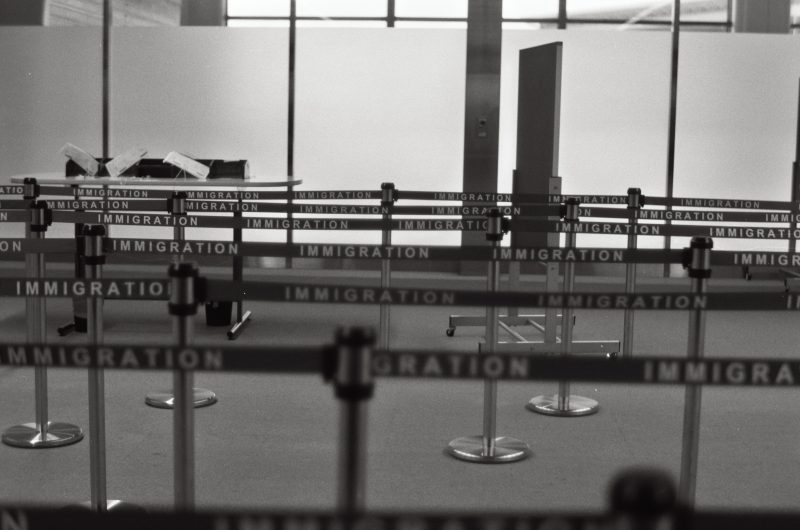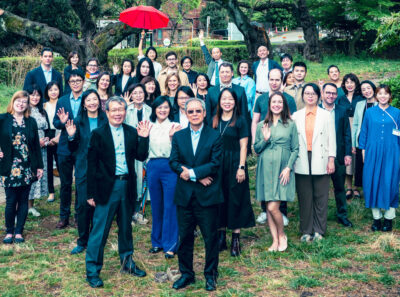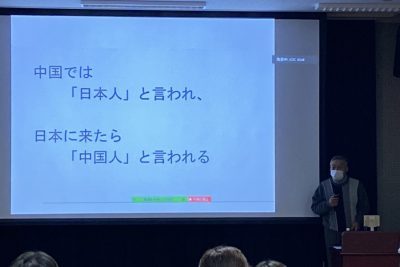Japan’s migrants are not allowed to go ‘home’

Above picture: Immigration queue. Narita Airport, Japan 6 Dec 2006 | Picture by Icars, flickr.
This article was originally published on November 3, 2020 on OpenDemocracy
Authors:
| SHAKUTO Shiori | Flavia Baldari |
 |
 |
| Tokyo College Project Assistant Professor | Tokyo College Project Researcher |
In Japan, COVID-19 shifted the meaning of ‘home’ overnight with devastating effects on the transnational lives of migrants.
2019 was a special year in the history of migration in Japan recording the highest number of both foreign residents in Japan and Japanese residents overseas since 1968. Yet, COVID-19 disrupted this flow as the Japanese government implemented strict pandemic border policies. The pandemic revealed the gap between the lived experience of migrants’ home-making practices and the government’s understanding of their temporariness. How does the meaning of ’home’ in the government’s pandemic border policies help us evaluate the future of labour migration in post-pandemic Japan?
The home redefined, overnight
Japan implemented border restrictions on 3 April 2020, prohibiting the entry of non-Japanese nationals or permanent residents from the majority of countries (as of 27 July, 150 countries were subject to restrictions). The ban applied to long-term work permit holders who had left Japan temporarily on work or holiday. The only exceptions applied to spouses or children of Japanese nationals or permanent residents and “long-term residents” (such as “persons with Japanese ancestry, Indochinese refugee settlers, the spouse or children of Japanese nationals left behind in China, etc”). Policies are constantly getting updated..
This resulted in around 90,000 foreign residents with homes in Japan being stuck offshore. The husband of one of the authors was one of them. He was returning to Japan from his work trip in Indonesia when he was stopped at the Narita airport. He had a job in Japan. He had his wife waiting for him at home in Tokyo. Yet, he was not allowed to cross the immigration gate. He slept on the floor of the terminal without even getting access to his suitcases. He was offered repatriation, but repatriation to where? He and his wife had lived, studied and worked in Japan for the last 10 years. Japan was their home. Yet he couldn’t come home.
The pandemic seemed to have shifted the meaning of ’home’ overnight with devastating effects on the transnational lives of migrants in Japan. More than five months have passed since the Japanese government implemented the border restrictions, but many non-Japanese nationals who live, work, and have a family in Japan still cannot enter the country. After much social media campaigning, the Japanese government started to loosen the border policies to allow foreign residents to return from 1 September, although the procedures are still far from smooth. If their request is approved, the returnees have to adhere to strict procedures for re-entry, including the pre-entry tests for COVID-19 and the submission of proof that the test was performed within 72 hours prior to their departure. It is still too early to tell if this will restore the movement of people in and out of Japan.
The border policies exposed the gap between the lives of migrants and the government’s perception of foreign residents as temporary, disposable labour whose ’real’ homes are overseas. Indeed, it is not uncommon for both highly-skilled and low-skilled migrants to migrate from one country to another every few years. Their jobs often require frequent travels too. From the point of view of the government’s border policies during the pandemic, the only way such highly mobile workers could make Japan their ’home’ and therefore return to it, was through marriage to a Japanese citizen or permanent resident. Any other forms of relationships – same-sex, or familial relations to non-Japanese nationals, does not count.
Same-sex marriage is not recognized in Japan, despite the increasing call to change the law. From 2015, Shibuya ward in Tokyo has recognized “same-sex partnership.” Although not legally binding, it was an important step towards the acknowledgment of the rights of same-sex couples, including for instance, rights to visit loved ones in hospitals, and rent apartments together. Since then, others have followed Shibuya’s example; at present, 57 prefectures and municipalities recognize same sex-partnerships.
The concept of home in the border policies, however, has been based on a very restrictive set of practices that reflect heterosexual and ethnocentric points of view.
Many migrants also engage in practices of home-making beyond marriage and child-birth. Anthropologists have long established that relations are created not just through blood and marriage, but also through co-living, friendships, and sharing of food and objects within communities. Such diverse home-making practices are becoming increasingly relevant in a society that has seen a decline in the rate of marriage among its own citizens, with a quarter of Japanese citizens between 20 and 49 being single.
The future of labour migration
Japan is heavily reliant on labour migration to address its demographic crisis. The effects of strict border policies were felt immediately in the manufacturing and service sectors which could not secure a sufficient number of foreign workers amidst the pandemic. If the home-making practices of so-called temporary migrants are not acknowledged, and if they can be prevented from returning home in the future, would labour migrants continue to want to stay and work in Japan?
During the pandemic, the migration policies affect the most intimate domains of our lives. Intimate ties, in turn, occupy a central space in the government’s migration policies in deciding who are allowed to enter the country. Critically unpacking the meaning of ’home’ in the government’s pandemic border policies provides a productive point to rethink the future of migration.
In Japan so far the meaning of home has been reduced to nationality, with marriage to Japanese citizens as an exception. Yet this conflation was premised on exclusionary practices along the lines of citizenship, gender and sexuality, which are increasingly called into question in contemporary Japanese society. In order to continue to attract labour migration into Japan, the government needs to evaluate its border policies to alter its monolithic understanding of home and acknowledge its multiplicities.








